GLIY PrelitIs s Waters




vii
ix
 s part of its program of providing continuing ministerial theological education for the church's ministerial and program staff, and as a resource to the entire presbytery (and larger evangelical community), as well as the local seminary community, the session of First Presbyterian Church, Jackson, Mississippi, established the John Hunter Lecture Series in 2003.
s part of its program of providing continuing ministerial theological education for the church's ministerial and program staff, and as a resource to the entire presbytery (and larger evangelical community), as well as the local seminary community, the session of First Presbyterian Church, Jackson, Mississippi, established the John Hunter Lecture Series in 2003.
This lecture series is named after the Reverend John Hunter, the sixth pastor of First Presbyterian Church. Hunter was horn and reared in North Ireland; received his seminary training at the Presbyterian Seminary in Danville, Kentucky; was a vigorous, faithful, and capable preacher of God's Word; and served as pastor of this congregation for 37 years (1858-1895).
The inaugural Hunter Lectures were devoted to critical issues in New Testament studies. The lecturer was Dr. Guy Waters, assistant professor of biblical studies at Belhaven College. Dr. Waters gave aproximately 20 hours of lectures on the origins and history of what is being called "the New Perspectives on Paul." His purpose was to give an accurate review and description of this approach to reading Paul, and then to assess it from a biblical, confessional, Reformed perspective.
To elaborate, Dr. Waters explained:
The purpose of these lectures is to give an historical and theological overview of the New Perspective on Paul (NPP). This study will lay out the theological, historical, and cultural antecedents to the NPP. It will examine representative and leading proponents of so-called "New Perspective" scholarship, and will explore nuances and differences among them. It will then engage in a theological and exegetical critique of the NPP. Finally, it will inquire why the NPP has been received with such enthusiasm within Reformed Christianity, and then underscore what theological and practical consequences adoption of NPP might have within Reformed Christianity.
These lectures were attended, and were met with appreciation, by First Presbyterian staff members, local college and seminary educators, and a number of area clergy, seminarians, and interested laypeople. The lectures were so well received that Dr. Waters was urged to revise them for publication. You now hold the product of those labors in your hand. Dr. Waters's mastery of this material will quickly become apparent. His work throughout manifests his knowledge, judgement, clarity, and care.
J. Ligon Duncan III
Senior Minister
First Presbyterian Church
Jackson, Mississippi
 any in the churches today are hearing for the first time about "the New Perspective(s) on Paul" (NPP). Some have encountered the term through undergraduate or graduate New Testament courses. Some may have heard that their session or presbytery is deliberating on the biblical and theological ramifications of the NPP. Others have been introduced to the NPP through more informal means-conversations with friends, articles posted on the Internet, or Internet discussion groups.
any in the churches today are hearing for the first time about "the New Perspective(s) on Paul" (NPP). Some have encountered the term through undergraduate or graduate New Testament courses. Some may have heard that their session or presbytery is deliberating on the biblical and theological ramifications of the NPP. Others have been introduced to the NPP through more informal means-conversations with friends, articles posted on the Internet, or Internet discussion groups.
From what quarters has the NPP come? Who are its major academic proponents? What are they saying? What biblical, theological, and confessional issues does the NPP raise? Should individuals in the Reformed community have an interest in this movement that is gaining popularity within the evangelical church? These are the questions that many in the churches are now raising concerning the NPP. These are the questions that I will endeavor to answer in the next nine chapters.
In this work I have at least three objectives. I first want to give an exposition of what leading scholars, recognized as proponents of the NPP, are saying about the theology of Paul and related issues. I have endeavored to quote liberally from these scholars in order to give readers who might not otherwise study this literature a fair sense of the authors' arguments, concerns, and conclusions.
Second, I want to show how the NPP emerges from an academic and theological discussion that predates it by more than two centuries. This "historical-critical" discussion yielded certain interpretative and theological decisions that, in certain respects, have determined the contours of the NPP. Awareness of the context of this discussion will help us in determining the degree to which persons in confessionally Reformed and evangelical churches may appreciate the NPP.
Third, I want to illustrate the ways in which the NPP deviates from the doctrines set forth in the Westminster Standards. I also want to show how Reformed theology surpasses the NPP in explaining Paul's statements regarding the law, the righteousness of God, justification, and a host of other topics and doctrines. In other words, our critique of the NPP will he not only theological but also exegetical.
I will finally attempt to explain why officers and congregants within Reformed and evangelical churches find the NPP attractive, and why such interest often attends interest in the theology of Norman Shepherd and the theology represented in the September 2002 statement of the session of the Auburn Avenue Presbyterian Church.
At this point, a reader might raise an objection: "Does the author have nothing good to say about the NPP? Is there nothing for a Reformed person to appreciate?" To this I answer, "By no means!" I greatly appreciate, to take but one example, N. T. Wright's pressing the lordship of Christ as a focal point of Christian belief and proclamation. He is correct, furthermore, to point to the eschatological inclusion of the Gentiles within the people of God as an important concern of the apostle Paul in his letter to the Romans. To take another example, E. P. Sanders, under whom it was my privilege to study as a doctoral student, has rightly questioned the adequacy of the reigning model of first-century Judaism that has circulated among New Testament scholars for at least a century. Scholarship was long overdue for refinement and correction, and Dr. Sanders has helpfully provoked the kind of academic discussion that is needed to produce a more balanced portrait of first-century Judaism.

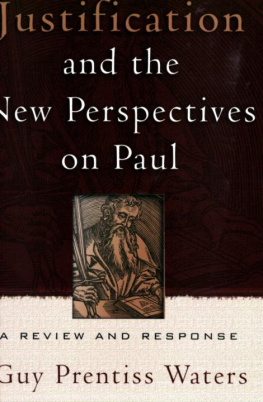
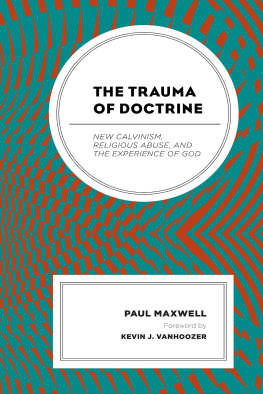
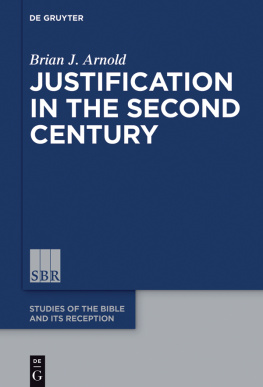
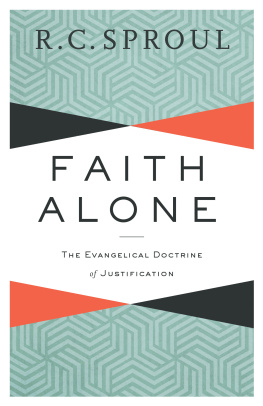
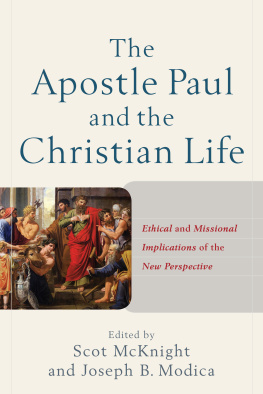
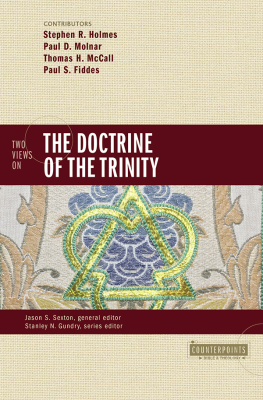

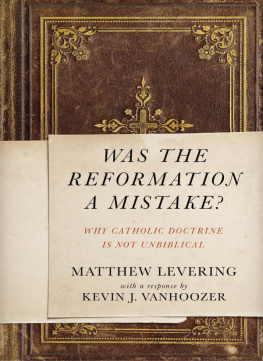
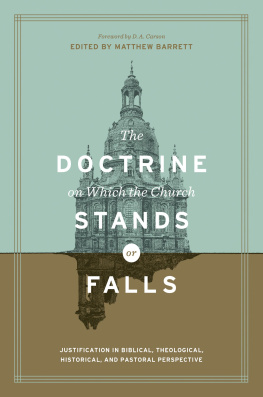
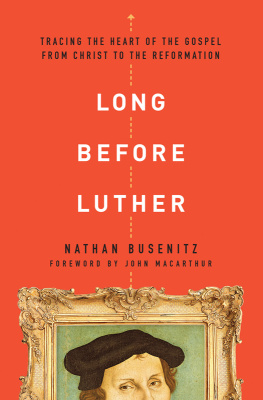
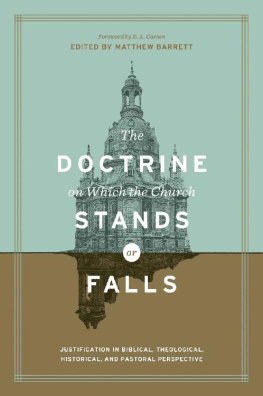



 s part of its program of providing continuing ministerial theological education for the church's ministerial and program staff, and as a resource to the entire presbytery (and larger evangelical community), as well as the local seminary community, the session of First Presbyterian Church, Jackson, Mississippi, established the John Hunter Lecture Series in 2003.
s part of its program of providing continuing ministerial theological education for the church's ministerial and program staff, and as a resource to the entire presbytery (and larger evangelical community), as well as the local seminary community, the session of First Presbyterian Church, Jackson, Mississippi, established the John Hunter Lecture Series in 2003. any in the churches today are hearing for the first time about "the New Perspective(s) on Paul" (NPP). Some have encountered the term through undergraduate or graduate New Testament courses. Some may have heard that their session or presbytery is deliberating on the biblical and theological ramifications of the NPP. Others have been introduced to the NPP through more informal means-conversations with friends, articles posted on the Internet, or Internet discussion groups.
any in the churches today are hearing for the first time about "the New Perspective(s) on Paul" (NPP). Some have encountered the term through undergraduate or graduate New Testament courses. Some may have heard that their session or presbytery is deliberating on the biblical and theological ramifications of the NPP. Others have been introduced to the NPP through more informal means-conversations with friends, articles posted on the Internet, or Internet discussion groups.